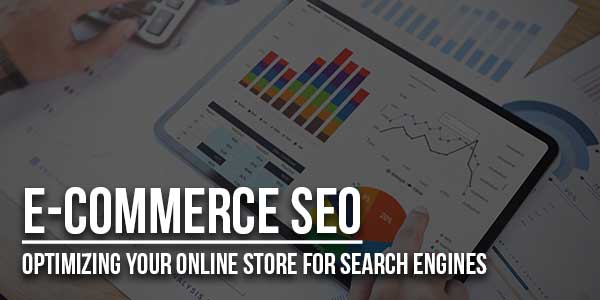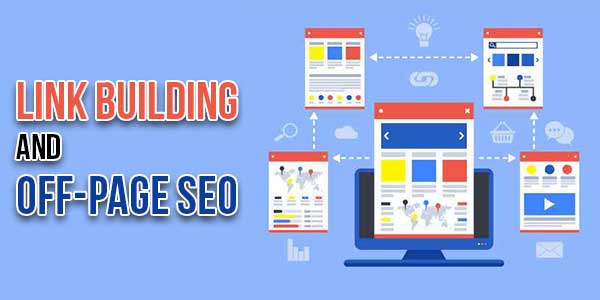
In the competitive world of e-commerce, optimizing your online store for search engines is vital to gain a competitive edge and attract valuable organic traffic. E-commerce SEO is a strategic approach that involves various techniques to improve your website’s visibility and rankings on search engine result pages (SERPs).
Table of Contents
Introduction:
By implementing effective e-commerce SEO strategies, you can increase your online store’s chances of being discovered by potential customers actively searching for products or services like yours. This comprehensive guide will walk you through the key components of e-commerce SEO, including keyword research, on-page optimization, technical SEO, link building, and monitoring analytics.
By following these strategies, you can enhance your website’s search engine visibility, attract targeted traffic, and maximize your online business’s success. Get ready to unlock the power of e-commerce SEO and take your online store to new heights.
Understanding E-Commerce SEO:
To effectively optimize your online store for search engines, it’s crucial to have a solid understanding of E-commerce SEO and its significance in driving organic traffic and improving your website’s visibility. By grasping the fundamental principles behind Search Engine Optimization, you can implement strategies that propel your online store to the top of relevant search results.
A.) Definition And Significance Of Seo In E-Commerce:
E-commerce SEO refers to the process of optimizing your online store’s website and content to rank higher in search engine results. It involves utilizing various techniques to enhance your website’s visibility and attract targeted organic traffic. By optimizing your website for relevant keywords and search terms, you increase the likelihood of your online store appearing in front of potential customers actively searching for products or services in your industry.
The significance of E-commerce SEO cannot be overstated. It acts as the foundation for a successful online business by:
- Driving organic traffic: By ranking higher in search engine results, you can attract a steady stream of organic traffic to your online store, reducing dependency on paid advertising.
- Improving user experience: Implementing SEO strategies helps optimize your website’s structure, navigation, and content, enhancing the overall user experience and making it easier for visitors to find what they’re looking for.
Increasing brand visibility: Ranking prominently in search engine results establishes your online store as a reputable brand and increases its exposure to a wider audience.
B.) How Search Engines Rank Websites:
Understanding how search engines rank websites is vital in developing an effective E-commerce SEO strategy. While the algorithms used by search engines like Google are complex and constantly evolving, several key factors influence website rankings:
- Relevance: Search engines assess how relevant your website and its content are to specific search queries. Optimizing your online store with targeted keywords and providing high-quality, relevant content is essential.
- Authority: Search engines consider the authority and credibility of your online store. This is influenced by factors such as the quality and quantity of backlinks pointing to your website and the overall reputation and trustworthiness of your brand.
- User experience: Search engines prioritize websites that offer a positive user experience. Factors like website speed, mobile-friendliness, and ease of navigation play a crucial role in determining rankings.
- Content quality: Creating valuable and engaging content that aligns with user intent is essential. High-quality product descriptions, informative blog posts, and relevant landing pages can significantly impact your website’s ranking.
By understanding these factors and implementing SEO best practices, you can optimize your online store to meet search engine requirements and improve your website’s visibility and ranking.
Keyword Research And Analysis:
An integral component of effective E-commerce SEO is conducting comprehensive keyword research and analysis. By understanding the search terms and phrases your target audience uses, you can optimize your online store to align with their needs and increase your chances of appearing in relevant search results.
A.) Importance Of Keyword Research In E-Commerce Seo:
Keyword research serves as the foundation for your E-commerce SEO strategy. It involves identifying the specific words and phrases potential customers use when searching for products or services like yours. By uncovering these keywords, you can optimize your website’s content and structure to match user intent and improve your search engine rankings.
Keyword research is crucial because it:
- Drives targeted traffic: By targeting the right keywords, you attract users who are actively searching for what you offer, increasing the likelihood of converting them into customers.
- Reveals customer insights: Analyzing keywords provides valuable insights into your target audience’s preferences, needs, and pain points. This understanding allows you to tailor your messaging and offerings to better resonate with potential customers.
- Guides content creation: Keyword research informs your content strategy, enabling you to create high-quality, relevant content that addresses the specific needs and queries of your target audience.
B.) Tools And Techniques For Effective Keyword Research:
To conduct effective keyword research for your e-commerce store, you can utilize a combination of tools and techniques. Here are some key approaches:
- Keyword research tools: Utilize tools like Google Keyword Planner, SEMrush, Ahrefs, and Moz Keyword Explorer to identify relevant keywords, assess their search volume, and competition, and gather insights into related terms and variations.
- Competitor analysis: Analyze the keywords your competitors are targeting and ranking for. This can provide inspiration and help identify gaps or opportunities in your own keyword strategy.
- Customer surveys and feedback: Engage with your customers to gather insights into the language they use when searching for products or services. Surveys and feedback can provide valuable firsthand information.
- Long-tail keywords: Focus on long-tail keywords – longer, more specific phrases that often have lower competition. These keywords can drive targeted traffic and help capture customers further along the buying journey.
C.) Identifying High-Converting And Relevant Keywords For Your Store:
When selecting keywords for your e-commerce store, it’s essential to strike a balance between relevance and search volume. Here are some tips to identify high-converting and relevant keywords:
- Relevance: Choose keywords that closely align with your products or services. Consider the intent behind the keywords and ensure they reflect what your target audience is looking for.
- Search volume: Assess the search volume of keywords to understand their potential reach. Focus on keywords with a balance of reasonable search volume and manageable competition.
- Long-tail variations: Explore long-tail variations of popular keywords. These can be more specific and may have less competition, allowing you to target a niche audience.
- User Intent: Consider the intent behind keywords – whether informational, transactional, or navigational – and align your content and optimization efforts accordingly.
By conducting thorough keyword research and analysis, you can optimize your e-commerce store to target the most relevant and high-converting keywords. This lays the groundwork for effective on-page optimization, which we will explore in the next section.

On-Page Optimization:
A.) Optimizing Website Structure, Navigation, And Urls:
Creating a well-structured and user-friendly website is essential for both visitors and search engines. Consider the following optimization techniques:
- Clear website structure: Organize your website into logical categories and subcategories, making it easy for visitors and search engines to navigate. Maintain a shallow hierarchy and ensure each page is easily accessible.
- Intuitive navigation: Implement a clear and user-friendly navigation menu that allows visitors to find what they’re looking for quickly. Include descriptive labels and use proper HTML tags for enhanced accessibility.
- SEO-friendly URLs: Optimize your URLs to include relevant keywords and keep them concise and descriptive. Use hyphens to separate words and avoid using unnecessary parameters or numbers.
B.) Crafting Compelling Product Descriptions With Keywords:
Product descriptions are a crucial aspect of on-page optimization as they provide valuable information to both users and search engines. Here’s how to optimize your product descriptions:
- Keyword integration: Incorporate relevant keywords naturally into your product descriptions. Focus on user intent and ensure the content remains informative and compelling.
- Unique and engaging content: Write unique, persuasive, and descriptive product descriptions that highlight the key features, benefits, and unique selling points of your products. Avoid duplicate content or using manufacturer-provided descriptions.
- Formatting and readability: Use proper formatting techniques such as headings, bullet points, and paragraphs to enhance readability. Break down content into easily scannable sections, making it more user-friendly.
C.) Optimizing Meta Tags And Header Tags:
Meta tags and header tags provide valuable signals to search engines about the content and structure of your web pages. Consider the following optimization practices:
- Title tags: Craft unique and compelling title tags for each page, incorporating relevant keywords. Keep them concise, descriptive, and within recommended character limits.
- Meta descriptions: Write persuasive meta descriptions that accurately summarize the page’s content and entice users to click. Include relevant keywords while ensuring the description remains concise and informative.
- Header tags: Use header tags (H1, H2, H3, etc.) to structure your content and highlight important sections. Incorporate keywords naturally into header tags to provide context to search engines and readers.
D.) Incorporating Keywords Naturally Within Page Content:
When optimizing your e-commerce website, it’s crucial to incorporate keywords naturally within your page content. Follow these guidelines:
- Content relevance: Ensure your content is relevant and aligned with the keywords you’re targeting. Provide valuable information that satisfies user intent.
- Keyword density: Avoid keyword stuffing and focus on maintaining a reasonable keyword density. Aim for a natural flow of keywords throughout the content.
- Semantic keywords: Include semantic keywords and related terms that support the main target keywords. This helps search engines understand the context and relevance of your content.

Technical SEO For E-Commerce:
A.) Enhancing website speed and performance:
Website speed is a critical factor that affects both user experience and search engine rankings. To improve website speed and performance:
- Page caching: Implement page caching techniques to store static HTML versions of your web pages. This reduces server load and speeds up page rendering for returning visitors.
- Optimize image sizes: Compress and optimize images to reduce their file sizes without compromising quality. Use appropriate image formats and leverage caching techniques.
- Minify CSS and JavaScript: Reduce the file sizes of CSS and JavaScript files by removing unnecessary characters, whitespace, and comments. This improves page load times.
- Enable browser caching: Implement caching mechanisms to store static resources on visitors’ browsers, reducing the need for repeated requests to the server.
B.) Implementing Mobile-Friendly Design:
With the increasing use of mobile devices for online shopping, having a mobile-friendly website is essential. Consider the following optimization techniques:
- Responsive design: Implement a responsive web design that adapts to different screen sizes and resolutions. This ensures a seamless browsing experience across desktop, mobile, and tablet devices.
- Mobile-friendly layouts: Optimize your website’s layouts, font sizes, and buttons for easy navigation and interaction on smaller screens. Prioritize mobile users’ needs and make the purchasing process streamlined.
- Fast mobile page speed: Optimize mobile page speed by following best practices like reducing server response time, minimizing redirects, and leveraging browser caching.
C.) Optimizing Images For Faster Loading Times:
High-quality product images are crucial for e-commerce, but they can impact page load times if not optimized properly. Consider the following image optimization techniques:
- Image compression: Compress images using tools or plugins to reduce their file sizes without sacrificing visual quality. Strike a balance between file size reduction and maintaining image clarity.
- Image file formats: Choose appropriate image file formats such as JPEG, PNG, or WebP based on image complexity and transparency needs. Optimize images for web usage to enhance loading times.
- Lazy loading: Implement lazy loading techniques to load images only when they are visible on the user’s screen. This helps reduce initial page load times.

Link Building And Off-Page SEO:
A.) The Role Of Backlinks In E-Commerce Seo:
Backlinks, also known as inbound links, are links from other websites that point to your e-commerce site. Search engines view these links as a signal of your website’s authority and popularity. However, not all backlinks are created equal. Quality and relevance are crucial factors in link building:
- Quality over quantity: Focus on obtaining backlinks from reputable and authoritative websites within your industry. A few high-quality backlinks can have a more significant impact than many low-quality ones.
- Relevance to your niche: Seek backlinks from websites that are relevant to your e-commerce niche. Links from related businesses, industry publications, and niche directories hold more weight with search engines.
- Diverse link sources: Aim for a diverse backlink profile. A healthy mix of links from different domains, such as blogs, news sites, and forums, signals to search engines that your website is trustworthy.
B.) Strategies For Acquiring High-Quality Backlinks:
While natural backlinks can occur over time, proactive link-building strategies can accelerate the process. Here are some effective tactics to acquire high-quality backlinks:
- Create valuable content: Develop engaging and informative content that naturally attracts links from other websites. This could include in-depth guides, infographics, videos, or original research.
- Guest blogging: Contribute guest posts to authoritative blogs in your industry. In return, you can usually include a link back to your e-commerce site in your author bio.
- Press and media coverage: Share newsworthy events, product launches, or company updates to attract attention from journalists and media outlets. Earned media coverage often results in authoritative backlinks.
Monitoring And Analytics:
A.) Setting Up Analytics Tools To Track Website Performance:
To effectively monitor your website’s performance, it is essential to set up reliable analytics tools. Consider the following:
- Google Analytics: Install and configure Google Analytics to track essential metrics such as website traffic, user engagement, conversion rates, and referral sources. This free tool provides valuable insights into how visitors interact with your site.
- Google Search Console: Connect your e-commerce website to Google Search Console to monitor its presence in search results, identify indexing issues, and view search analytics data. This helps you understand how your website performs in organic search.
B.) Monitoring Keyword Rankings And Organic Traffic:
Tracking keyword rankings and organic traffic is vital to gauge the effectiveness of your SEO efforts. Use the following approaches:
- Keyword ranking tools: Utilize keyword ranking tools to monitor the positions of your target keywords in search engine results pages (SERPs). This allows you to identify areas for improvement and track the impact of your optimizations.
- Organic traffic analysis: Analyze the organic traffic data in your analytics tool to understand how users find and engage with your website through search. Identify trends, patterns, and areas of opportunity for further optimization.
Conclusion:
E-commerce SEO is a critical aspect of running a successful online store. By optimizing your website for search engines, you can improve its visibility, attract more targeted traffic, and increase the chances of converting visitors into customers.
Through keyword research, on-page optimization, technical SEO, and link building, you can establish your website’s authority and credibility. Monitoring and analyzing key metrics, such as keyword rankings, organic traffic, and user behavior, allow you to make data-driven decisions and continually refine your SEO strategies.
By investing in e-commerce SEO and staying updated with industry best practices, you can gain a competitive edge and drive long-term growth for your online business.

 About the Author:
About the Author:
















Be the first to write a comment.